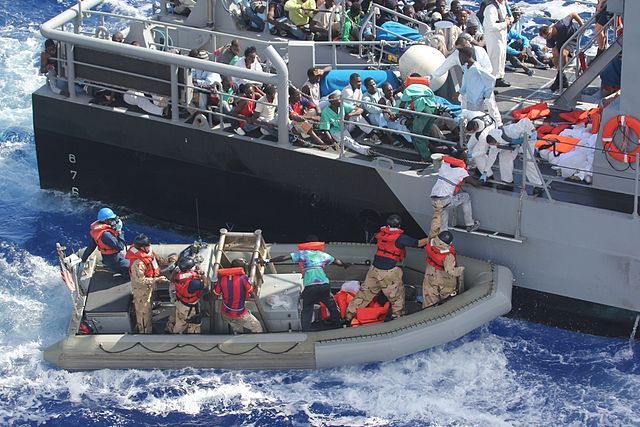The UN International Organization for Migration (IOM) has urged for improved safety protocols and coordination along migration routes following a tragic shipwreck off the coast of Tunisia that resulted in the deaths of 40 migrants. The incident, which occurred near Mahdia, involved nine women, 19 men, and 12 infants and preschoolers. Tunisian naval rescue operations successfully saved 30 individuals, primarily from West and Central Africa.
In a statement, the IOM expressed its condolences to the families affected by this disaster. The organization emphasized the importance of protection-sensitive search and rescue operations and the need to expand safe and regular migration pathways.
Tragic Context of Mediterranean Crossings
According to the IOM’s Missing Migrants Project, approximately 1,000 deaths and disappearances have been documented in the Central Mediterranean in 2024 alone. Historically, the Mediterranean has been a perilous crossing for migrants fleeing conflict and violence in their home countries. This incident recalls a similar tragedy in 2021, where another shipwreck off Tunisia claimed the lives of 40 African migrants.
In the wake of increasing migration pressures, the IOM has reported alarming figures, indicating that globally, 8,938 people lost their lives on migration routes in 2024. Human Rights Watch has condemned Tunisia for lacking adequate asylum systems, while local human rights organizations have criticized the treatment of migrants facing severe conditions and expulsions towards the Libyan border.
Pope Leo XIV has also voiced concern over the “ever more inhuman” measures employed by various countries to curb illegal immigration, reaffirming the moral obligation to provide refuge to those in need.
Escalating Humanitarian Concerns and Responses
International rights groups have highlighted serious abuses faced by migrants, refugees, and asylum seekers at the hands of Tunisian security forces. Concurrently, aid workers in Italy supporting migrants have faced legal repercussions as the country intensifies its crackdown on migration. Italy has established agreements with Libya and other Mediterranean nations, claiming these measures are intended to protect its borders while enabling interceptions of thousands of migrants at sea.
With deepening crises looming in regions such as Congo, Sudan, and other sub-Saharan nations, the tightening of migration controls to prevent illegal entry into Europe raises concerns. Rights advocates warn of a growing humanitarian crisis as individuals resort to increasingly dangerous routes, facing the possibility of being returned to countries like Libya and Tunisia, which enforce European migration policies in exchange for financial support.
As the situation evolves, the IOM’s call for enhanced safety measures underscores the urgent need for collaborative efforts to protect vulnerable migrants navigating treacherous pathways in search of safety and stability.







